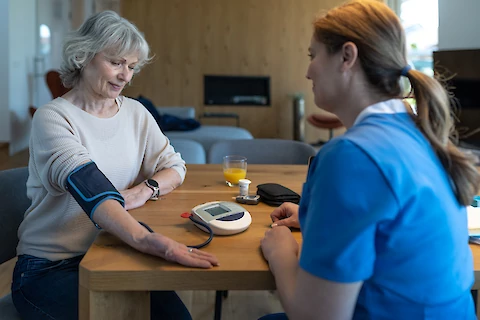
Having a good comprehension and taking charge of our health becomes more critical as we age but often gets overlooked. While it may not seem as immediate or evident as other health concerns, managing cholesterol in seniors plays a vital role in heart health. If you're a senior or have a loved one who is, read on for an informative guide on all things lipoprotiens.
Cholesterol Basics
Cholesterol is a waxy, fat-like substance in all your body's cells. Producing certain hormones, vitamin D, and substances that help digestion is essential. However, there's a catch. Your body makes enough lipoprotiens for these functions, so any extra from dietary sources can lead to health issues.
Good Vs. Bad Lipoprotiens
Cholesterol travels through your body in small packages called lipoproteins. There are two lipoproteins: Low-density lipoproteins (LDL) and high-density lipoproteins (HDL). LDL, often known as bad cholesterol, can create deposits in your arteries, impeding blood flow. On the other hand, HDL, or good cholesterol, carries lipoprotiens back to the liver, which then removes it from the body.
Lipoproteins and Heart Health
High LDL levels lead to plaque buildup in the arteries, causing them to narrow. This condition, known as atherosclerosis, reduces blood flow to the heart and can result in chest pain or a heart attack. The higher your LDL level and the lower your HDL level, the greater your risk of heart disease.
Having elevated lipid levels doesn't cause any symptoms, but it can increase the risk of heart disease and stroke dramatically. On the contrary, maintaining healthy lipoprotiens levels can help maintain heart health and lower the risk of heart disease.
Managing Cholesterol in Seniors
Lipoprotiens regulation can be challenging for seniors due to age-related changes in the body and potential medication interactions. Regular lipoprotien checks are crucial since cardiovascular risk increases with age.
Keeping Lipid Levels in Check Through Diet
A healthy diet can play a significant role in lowering your lipid levels. Incorporating heart-healthy foods like whole grains, fruits, vegetables, lean proteins, and foods rich in omega-3 fatty acids can make a substantial difference. It's also important to limit foods high in saturated fats, trans fats, and cholesterol.
Lifestyle Changes for Lipoprotein Control
Apart from diet, lifestyle modifications can also lower your lipid levels. Regular physical activity can raise HDL and lower LDL and triglycerides. Moreover, quitting smoking, moderating alcohol intake, and employing stress management techniques can also aid in maintaining healthy lipoprotien levels.
In-Home Care and Lipid Management
In-home care can be a valuable resource for seniors in managing lipoprotien levels. At Senior Helpers Lafayette, our dedicated caregivers can assist with meal preparation, ensure adherence to a heart-healthy diet, encourage regular physical activity, and provide medication reminders.
Get More In-Home Support for Heart Health
Maintaining healthy lipid levels is a significant aspect of cardiovascular health, especially for older adults. They can work towards improved cardiac health by learning and making the right choices.
If you or your loved one resides in Abbeville, Carencro, or Eunice and needs support in addressing cardiovascular wellness, consider Senior Helpers Lafayette. We offer in-home care services and valuable support in managing cholesterol in seniors effectively. Contact us today to know how we can help you achieve better health at home.